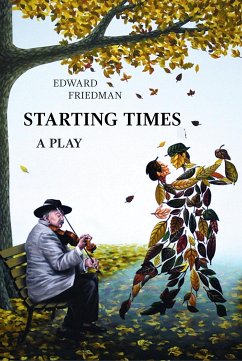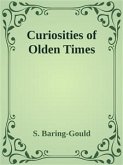FOREWORD
Starting Times by playwright Edward Friedman is an interesting work, constructed around two couples, a younger one, composed of Rick, a doctoral student in English literature, and his girlfriend Melissa; and an older one, which will be formed little by little during the play by Professor Arthur Jacobs, Rick’s thesis director, and Melissa’s aunt, Edith. It is a very fine, acute, and descriptive study, on one side, of the graduate student/thesis director relationship, or better said, about the protective power Rick imagines that this close and special relationship allows him to have, in order to protect his mentor against flirting attempts of someone he perceives as a pushy, invasive, and vulgar, middle-aged woman, Edith; and, on the other side, the commencing relationship of Arthur and Edith, both divorced and emotionally hurt by their respective pasts, under Rick’s suspicious supervision and Melissa’s more open-minded agreement. Arthur was abandoned by his wife after she became a lawyer; and Edith, who suffered an abortion and lost a child she was expecting, divorced her husband, Lenny following his incarceration.
Friedman shows very well that Rick’s overprotective approach forces Arthur and Edith to go slowly from a first date into a more serious and possibly durable relationship as a couple. The play is full of references either to Anne Tyler’s novel Amateur Marriage or to William Shakespeare’s theatrical universe, or to Anton Chekhov’s. “All’s well that ends well,” the English playwright and bard would have concluded: at the end, Rick defends his doctoral thesis and becomes a Ph.D. and a newly appointed assistant professor at Marquette University, and Arthur and Edith are publicly accepted as a couple. It seems that Rick and Melissa are to live separately, at least for one year, perhaps more. Friedman thus hints at the uncertain circle of life in a touchy but definite way. Starting Times is an admirable play that reminds us of Spanish Golden Age theater’s quid pro quo situations.
“Try again. Fail again. Fail better,” Samuel Beckett once said.
Friedman’s play is a solid example of the Irish playwright’s encouraging notion.
Alain Saint-Saëns
Starting Times by playwright Edward Friedman is an interesting work, constructed around two couples, a younger one, composed of Rick, a doctoral student in English literature, and his girlfriend Melissa; and an older one, which will be formed little by little during the play by Professor Arthur Jacobs, Rick’s thesis director, and Melissa’s aunt, Edith. It is a very fine, acute, and descriptive study, on one side, of the graduate student/thesis director relationship, or better said, about the protective power Rick imagines that this close and special relationship allows him to have, in order to protect his mentor against flirting attempts of someone he perceives as a pushy, invasive, and vulgar, middle-aged woman, Edith; and, on the other side, the commencing relationship of Arthur and Edith, both divorced and emotionally hurt by their respective pasts, under Rick’s suspicious supervision and Melissa’s more open-minded agreement. Arthur was abandoned by his wife after she became a lawyer; and Edith, who suffered an abortion and lost a child she was expecting, divorced her husband, Lenny following his incarceration.
Friedman shows very well that Rick’s overprotective approach forces Arthur and Edith to go slowly from a first date into a more serious and possibly durable relationship as a couple. The play is full of references either to Anne Tyler’s novel Amateur Marriage or to William Shakespeare’s theatrical universe, or to Anton Chekhov’s. “All’s well that ends well,” the English playwright and bard would have concluded: at the end, Rick defends his doctoral thesis and becomes a Ph.D. and a newly appointed assistant professor at Marquette University, and Arthur and Edith are publicly accepted as a couple. It seems that Rick and Melissa are to live separately, at least for one year, perhaps more. Friedman thus hints at the uncertain circle of life in a touchy but definite way. Starting Times is an admirable play that reminds us of Spanish Golden Age theater’s quid pro quo situations.
“Try again. Fail again. Fail better,” Samuel Beckett once said.
Friedman’s play is a solid example of the Irish playwright’s encouraging notion.
Alain Saint-Saëns









